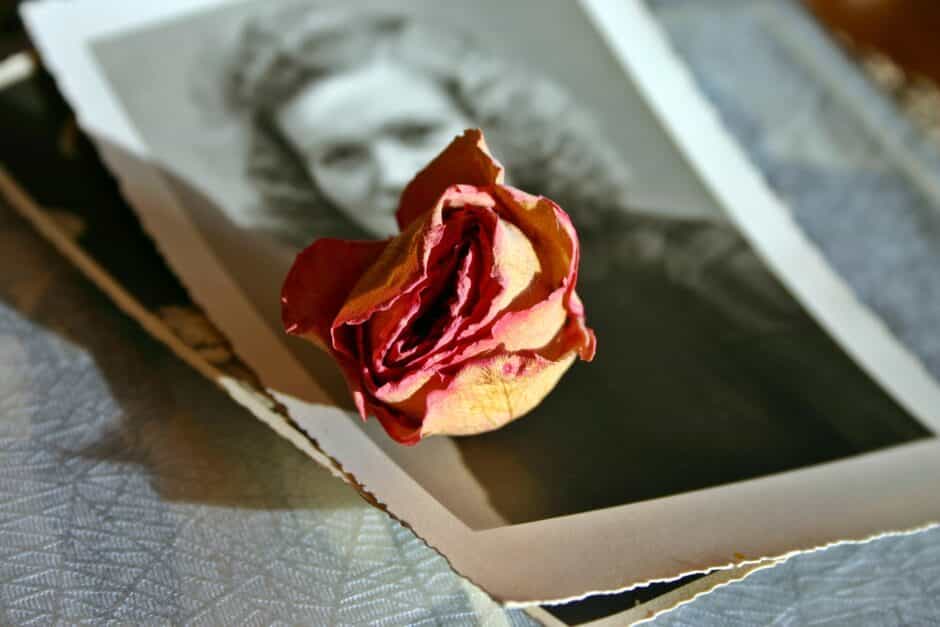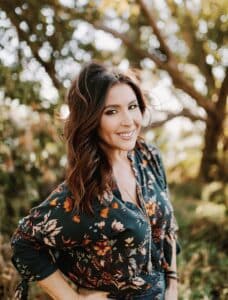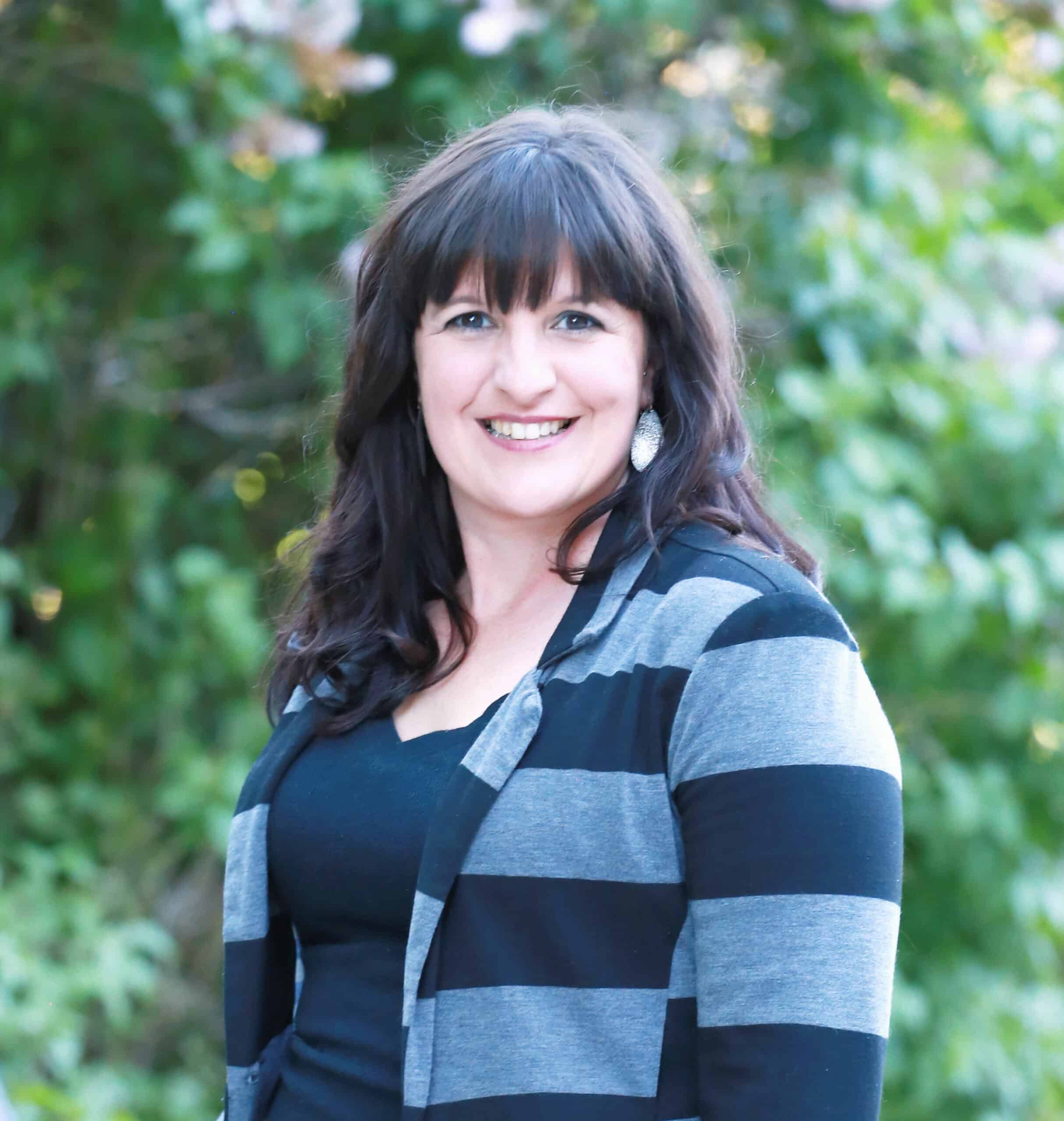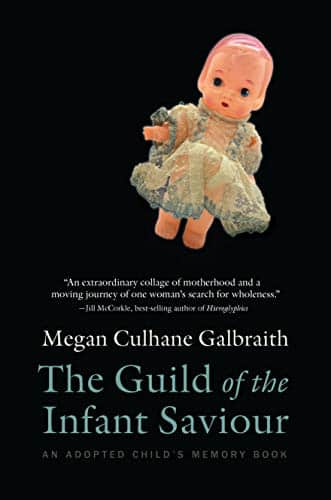“I don’t know what he talks about in there. He won’t let me go in with him,” my mom said to me once while I was visiting my parents as an adult, “but I’ve seen he has tears in his eyes sometimes when he comes out.” While catching up, dad’s newfound and uncharacteristic attendance of counseling was a pressing topic. “I know he doesn’t want to go back. I know the therapist told him it was one of the most horrific cases of child abuse they had ever heard; and that they had heard a lot.”
“What would make her so mad?” dad told me once they asked him in his therapy sessions at the Veteran’s hospital. “Didn’t seem like it took much of anything to make her mad,” was his answer.
“She used to keep a butcher knife under the couch,” he once said with a catch in his throat. “She would take it out and show it to me. I was only six years old.”
That was all he said on the subject.
***
She had red hair we would casually mention sometimes when talking about grandma. “No,” someone would inevitably say, “It was piss-orange!” and we’d all laugh because that’s what she used to call it herself, the bright brassy color she so despised.
***
When the boxes would arrive, I would be elated. Often five, or six, maybe more within a single shipment. These boxes only ever contained one thing, and they were always for me. We would tear them open and marvel at each Beanie Baby to add to my growing collection. My dad built a wooden display shelf that wrapped around my entire room, one foot from the ceiling. Carefully my mom and I would put the little plastic tag protectors on each one and set them in just the right places on the shelf. Over time I amassed nearly one hundred of them. As a tween in the mid-nineties this collection was the epitome of cool.
“You must be spoiled rotten!” the UPS woman quipped once as she mock sniffed near the inner part of my shoulder and neck. She was so nice, it tickled and was funny, but she smelled like cigarettes.
Once, in the bottom of one of the boxes there was a black t-shirt with a racecar and some outlandishly bright logo I didn’t recognize, haphazardly included. It was too big for me, and obviously a boy’s style. There were never any letters included with the packages, no well wishes or explanations of their contents, and this being no exception had no note to offer any information on the oddly outplaced addition of the t-shirt.
“Must be for Jeremy,” my mom reasoned, confounded.
“Looks like a freebie,” my dad grumbled.
“I’m just surprised she sent me anything at all,” my older brother, Jeremy said.
***
“Oh shit!” I said, apropos of the milk I had just spilled across the dinner table at the tender age of two. My mom was furious. My grandma doubled over at the table and lost her breath, unable to contain her laughter. I’d apparently learned it from her, and it wasn’t just that I had blurted it out, but that I had done so, in such expert context.
It was her favorite word, everyone remembers.
***
“Grandma wasn’t always nice like she is today,” my dad would sometimes mention both casually and cautiously when talk of her arose, like summoning an omen to what I didn’t know.
“Well, she’s nice now” I blithely sing-songed in all the knowing of my nine years on earth, and all the unknowing of the information I had purposely been sheltered from.
***
She was a nurse. “When she worked at that children’s home, she’d tell stories of taking those kids and mopping the floor with them,” my mom explained in remembered horror. “I think she liked doing it, too,” she added, shuttering with a brow furrowed in consternation.
***
Once at the Edgewater hotel in Seattle she sat up all night watching the ferries slowly gliding back and forth across Elliott Bay. All night, staring out the window across the sound. She just sat there mesmerized by the crisscrossing of the boats against the water. Dad was elated. He knew he had made her happy.
The Edgewater, as the name suggests is built literally onto the edge of the shore and out into the Puget Sound atop numerous wood pilings. My mom and I giddy with joy, handed pieces of white bread out the window to the seagulls who flew by taking it from our hands. My dad and brother baited hooks and dropped their fishing lines into the water right out of the hotel window. I waved at one of the passing ferries. “We’ve got a little girl waving at us,” I heard the captain say over the loud-speaker and the entire ferry full of people waved back at me. I beamed.
***
“Grandma doesn’t like boys,” was the common refrain, but no one ever knew why.
***
“One day I came home and made a mayonnaise sandwich,” my dad said. “There wasn’t any meat. Just mayonnaise folded over itself on a piece of Wonderbread. I wanted another one so bad, but I knew I would be taking away from the family,” he continued sadly reminiscent, weaving his way through a fog of memories, each as clear as the day they
happened. Each still stinging forty years later.
“When there were cornflakes for breakfast, if you crushed yours up it would look like less in your bowl and you would get more,” he explained when I snickered and asked why he dug his hands into his cereal to crush it into dust before he poured on his milk. It was one of those old habits that died so hard. It was an act of survival.
“Here we were. Couldn’t even afford enough food to live on, and my uncles, every one of them, were millionaires,” he helplessly laughed to himself. “I promised myself that when I had a family, they would never go hungry,” he continued.
A promise made ostensibly from love and determination, but conceived in mental anguish, and one that would eventually play itself out in an obsession with stockpiling food and lead to morbid obesity.
***&
“I don’t know what happened, but they came and took those two boys away. She hurt one of them,” he offered, but it was all the information he knew. “When they took in those boys, I thought they were going to be my brothers, but then they took them away.”
I could tell how desperately he had wanted a companion. Someone to commiserate with, someone to conspire with, but not someone to endure what he was enduring. He felt sorry for them, maybe even more so than for himself.
***
“She bought out the entire dress store,” my mom recalled. “It was a little store in town that was going out of business and she bought every single dress they had,” she told me.
“Well, one thing’s for sure, Janet,” my grandmother told my mom, “she’s going to be the best dressed girl around.”
“I had so many dresses they didn’t even fit in your closet, my mom exclaimed! I had them all lined up, organized by size. I didn’t buy you any clothes at all for the first year!”
***
“I was riding a tractor at eight years old, all by myself” my dad would say. “By twelve I started working at the veterinary clinic. From then on I could buy my own food.”
***
“One time my grandparents came and took me away when I was young,” he explained. I went to live with them for a while.” He didn’t know why. It was never discussed. “They just drove up and said, ‘Clarence is coming with us’. No one put up a fight about it.”
***
His father died at the age of forty-two, when my dad was only seventeen. It was emphysema. Two packs of Camel Studs a day. Dad’s ear drums ruptured when he was only five years old. It was the fifties. Everyone smoked around their kids.
“Face me when you talk,” he always says. I’m hard of hearing, but I can read lips. “
***
“Once she put a hot iron on my leg one time he said as he launched himself down the rabbit hole of pain and remembrance. A spiral that often lasted an hour or more. I had a scar from that for a long time, my dad remembered hesitantly. “Another time she locked me in a scalding hot shower.
“Get in and wash up, she commanded. You’re filthy.”
I was only five or six. I tried to scoot as far as I could into the corner so the hot water wouldn’t touch me. Then it turned ice cold. I was in there over an hour. I was twelve when I told her she couldn’t hurt me anymore. Right in the middle of her bloodying my nose. I told her it didn’t matter what she did to me, she couldn’t hurt me anymore, ever again.”
***
“I think my whole life could have turned out differently,” he said recently. “I could have been a better father, a better Christian, even more successful in school and life if things had been different when I was young.”
It was a sad recognition of unresolved trauma, decades too late. What he still fails to realize is that we, his children were lucky to always have, enough food to eat, a roof over our heads, and the unconditional love of not one, but two parents. That in his breaking of the cycle of trauma, abuse, and neglect, his life was the ultimate success.
Becky A. Benson’s work has appeared on Salon, Modern Loss, Modern Mom, The Manifest Station, Brain, Child, Scary Mommy, Grief Narratives, Months to Years Lit Mag and beyond. She has written and spoken for the Center for Jewish Genetics in Chicago, and Soulumination in Seattle. She holds a degree in psychology and works for the National Tay-Sachs and Allied Diseases Association serving families of terminally ill children as the organization’s Conference and Family Services Coordinator.
She lives in the Pacific Northwest with her family and beloved dachshund. Her passion is for helping families endure the loss of a child, spreading awareness for genetic conditions, advocating for adoption, and providing a voice to the marginalized in society. These things, above all else continue to intimately shape her writing.
***
Writing Cohort Opportunity
Circe is offering: Crucible – A Year-Long Writing Cohort
Let by Gina Frangello and Emily Black, this cohort is designed for writers seeking to spend a year deeply immersed in writing or revising a book length work.
Email info@circeconsulting.net for more information
***







